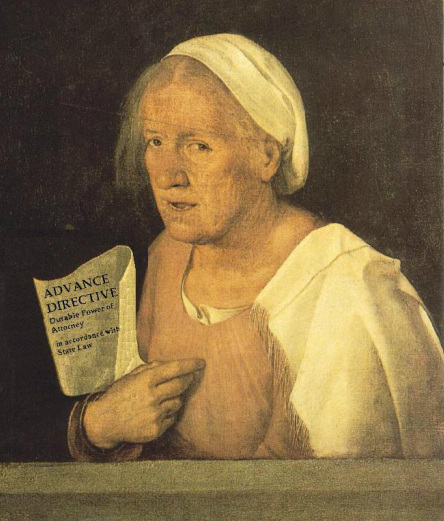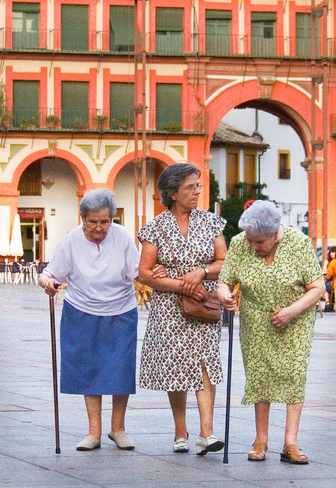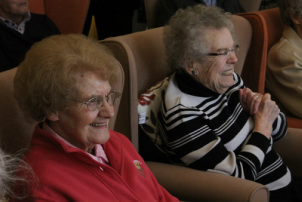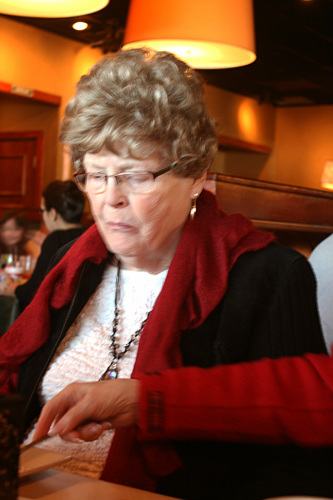
It was Bette Davis who said, "Old age is no place for sissies.” She was right. In spite of all the platitudes we hear about the importance of keeping an aging mind active and the joy of doting on grandchildren, the fact is that old age can be absolutely heartbreaking.
Physical deterioration is the most obvious problem. Some pain can only be controlled by virtual unconsciousness.
Lack of mobility is perennially frustrating (try maneuvering a wheelchair around and between twin beds in a compact room, and you’ll begin to understand). And the onset of confusion – when you realize that your mind is going, and still feel embarrassed by it – can be very frightening.
But for many, loneliness is the worst part of old age. That can be true for the childless, of course, unless we’re fortunate to have both all our marbles and a sparkling personality. It can be worse, however, for those with children who live nearby but don’t have the time or inclination to call or visit or even to drop the occasional card in the mail.
For way too many people, life consists of decades of routine punctuated by sorrow, fear, and those occasional moments of temporal highs that we call happiness. And if we live long enough, those emotions can kick into high gear –especially if we have little-to-no hope of a heavenly end.
Can you help?
Compassion comes in multiple forms, and there are many ways to spend it. But if you happen to be one of those with a heart for the elderly, and if you have the requisite patience and interest in others, you can make an enormous difference in the lives of these most obvious occupants of eternity’s waiting room.
If the idea appeals to you, and if you have yet to decide what to do about it, perhaps I can coax you into getting started soon.
Use your imagination
What can you do to help? The possibilities are virtually unlimited, so maybe a better question concerns what you enjoy doing, and how you might parlay that into something that will benefit some old folks. For instance, perhaps you could:
- Help your church stay in touch with shut-in members by starting up and running a cards-and-letters ministry.
- Gather some friends and make lap robes or shawls for the always-cold elderly.
- Set up and conduct a weekly or monthly hymn sing, church service or Bible study at a local long-term-care facility, remembering that today’s elderly may be the last generation in which the majority have been lifelong and ardent church-goers.
- Give a hand to an elderly person who’s finding it increasingly difficult to “age in place” at home.
- Bring your area of expertise – whether it’s banking or healthcare or crafts or just about anything else -- to share at a nearby senior center.
- Offer to serve as a wheelchair escort on outings sponsored by a nursing home or assisted living facility.
- Just be a friend, calling and visiting lonely old people to share a cup of morning coffee, reminisce over a favorite photo album, play a game of Scrabble, or read favorite Bible books aloud.
And these are just a few of the ways you could bring great joy to an elderly friend. Whatever activity you choose, it’ll cost you little more than time. Yet it can mean the world to someone who has little left in the way of companionship or resources.
A great place to start
My personal experience is with nursing homes, primarily with the one where my mother lived and died -- Care-age of Brookfield, a terrific smaller home that’s staffed by people who really care about their residents, and bend over backwards to make them both comfortable and content. If I ever have personal need of such a facility, this is the one where I’d want to spend my last days on this earth.
But there are undoubtedly lots of opportunities to be a blessing to the elderly in your community. If you don’t know what you’d like to do, take some time to explore your options. Ask your friends and colleagues if they know someone who needs help. Call a nearby nursing home or two to ask what sort of hands-on assistance they could use. Or do an internet search using a phrase such as“eldercare volunteer opportunities,” adding the name of your city or town, and you’ll probably discover scores of organizations that are eagerly awaiting your call.
The Christian's charge
We Christians have been entrusted with sharing the Gospel far and wide (Matthew 28:19-20). I’m certain, in fact, that good deeds performed apart from the Good News are ultimately useless. Those elderly people who know Christ as their personal Savior will want to rejoice in that fact with you. And those who do not know Him need to, just as soon as possible – which means we need to speak up and proclaim the Gospel, speaking the truth in love (Ephesians 4:15).
As evangelist Mark Cahill said in a 2010 newsletter: "I was speaking in the farm country of Iowa recently. And farmers always know one thing: If you do not plant a seed in the ground, it does not matter how much you pray for a good harvest of crops, how much water, sunlight, and fertilizer you use; nothing will be coming out of the ground in three or four months. Why? If no seed is planted, nothing will grow."
We need to be about the business of planting the seeds of the Gospel in the hearts of those who have yet to receive Christ. And what better way to do it than while we’re ministering to the physical needs of people who – at least actuarially speaking – are closest to stepping into eternity?









 RSS Feed
RSS Feed